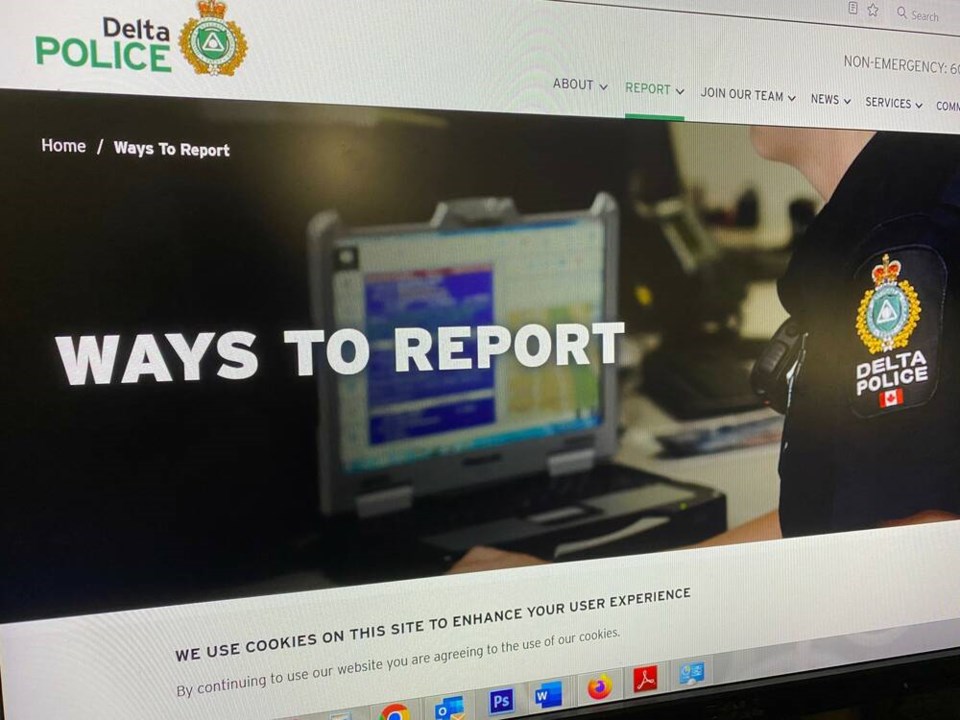It’s proved to be a valuable tool that has helped improved the efficiency of the Delta Police Department (DPD).
Chief Neil Dubord earlier this month provided the Delta Police Board with an update on his department’s Online Incident Reporting System (OIRS), which was launched in the fall of 2020.
The system allows residents to report several non-emergency incidents online, and since its implementation, the range of incident types accepted has broadened.
Currently, the system accepts reports for vandalism (up to $10,000), fraud ($10,000), lost property ($10,000), theft ($10,000 with no suspect), general community concerns, traffic incidents, and hit-and-runs (with no injuries or the suspect’s licence plate known).
“The OIRS aligns with the DPD’s community-first policing approach, grounded in the ‘No Call Too Small’ philosophy. The community has come to expect a certain standard of service from the DPD, and accordingly, the OIRS offers an alternative and convenient method for community members to report incidents to the police without needing to use the phone. It should be noted that the DPD’s response to an incident report received through the OIRS is the same as a response to a call to the non-emergency line,” his report explains.
Dubord told the board each report is reviewed and dispatched for officer attendance, ensuring that no reports are concluded online.
The OIRS is available 24/7, however, incoming reports are actively monitored only between 7 a.m. to 7 p.m. and those submitting reports outside those hours, are informed that the system is not currently being monitored, and any submissions made during that period will be processed the following day.
A pop-up box advises people seeking a more immediate response to call the non-emergency line.
During 2023, the DPD received 355 reports through the OIRS, with an average of 30 reports monthly.
The number of reports received has remained relatively consistent since the launch of the OIRS, and similar to 2022.
The top three categories of calls last year were lost property incidents with 127 calls, followed by general community concerns at 62 calls, and traffic incidents at 56 calls.
“It complements phone reporting by providing an additional means for reporting and addressing concerns that, while potentially minor, help prevent community safety related issues from escalating,” the report adds.
Meanwhile, the department’s non-emergency telephone call line continues to operate from 7 a.m. to 7 p.m.
It started as a pilot project in December 2021, seeing Delta police assume responsibility from E-Comm for answering non-emergency calls between those hours.
Non-emergency calls from 7 p.m. to 7 a.m. continue to be transferred to E-Comm.
Dubord previously told the police board that his department was considering several options including taking non-emergency calls until midnight, or even 24/7.
During this month’s police board discussion on E-Comm’s March 16, 2024 temporary service disruption, which caused delays, Dubord noted the DPD’s non-emergency call-taking service which is directly managed by DPD staff remained unaffected.




